These 6 educational videos will highlight key timelines for health care transition (HCT) from pediatric to adult-focused health care, and strengthen collaboration and coordination between clinicians, specifically for youth and young adults with spina bifida. Building on other efforts to support the HCT process, the videos will also aim to emphasize the needs of individuals with spina bifida and address support for cognitive and physical challenges which could impact self-management and quality of life.
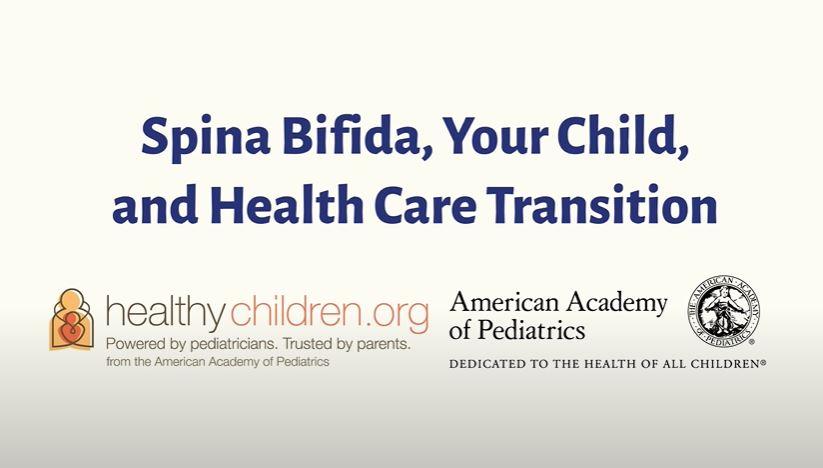
Spina Bifida, Your Child and Health Care Transition
Description: If your baby or young child has been diagnosed with spina bifida, you may feel unsure how it will affect your child (or the child you care for). Part of caring for your child is also preparing them to participate in their own health care. In fact, the health care transition from pediatric to adult-focused care ideally starts at birth. Watch this video for guidance, resources and tips on supporting your child as they build independence skills early to be set for success.
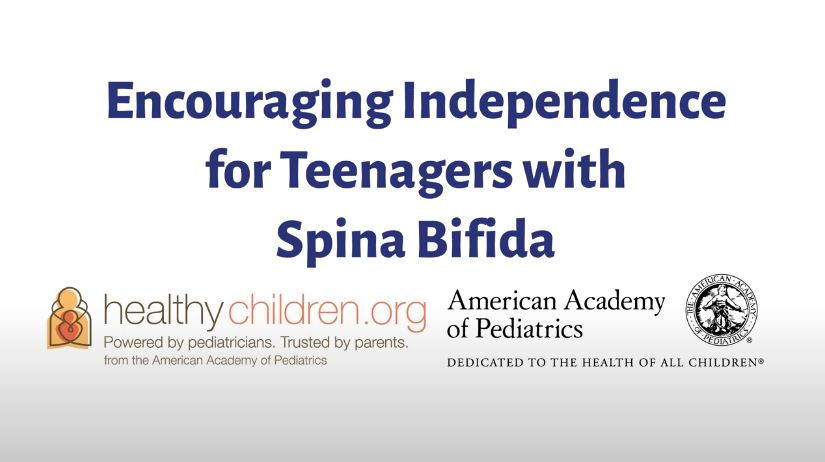
Encouraging Independence for Teenagers with Spina Bifida
Description: As parent or caregiver of a teen living with spina bifida, you can set them up to take a leadership role in their transition from pediatric to adult health care. Keep in mind that health care transition is an ongoing process. Watch this video to learn how fostering and encouraging independence during adolescence helps them achieve long-term independence. Key topics include being able to explain their diagnosis to others and having conversations about legal and financial considerations as well as about normal teen issues they may be experiencing.
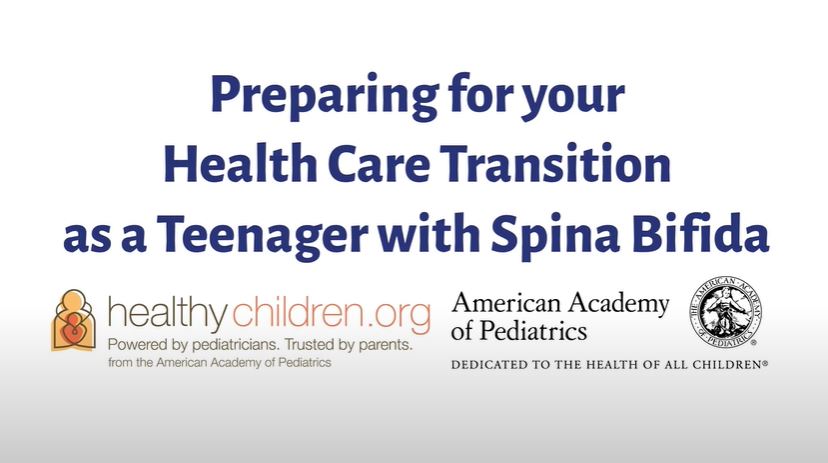
Preparing for Your Health Care Transition as a Teenager with Spina Bifida
Description: As someone with spina bifida entering your teen years, it’s important to start managing your own health. This involves self-advocacy and building independence to help with your transition from pediatric to adult-focused care. Watch this video to learn more about establishing independence by leading your own doctor’s appointments, as well as understanding and explaining your diagnosis and why you are taking certain medications.
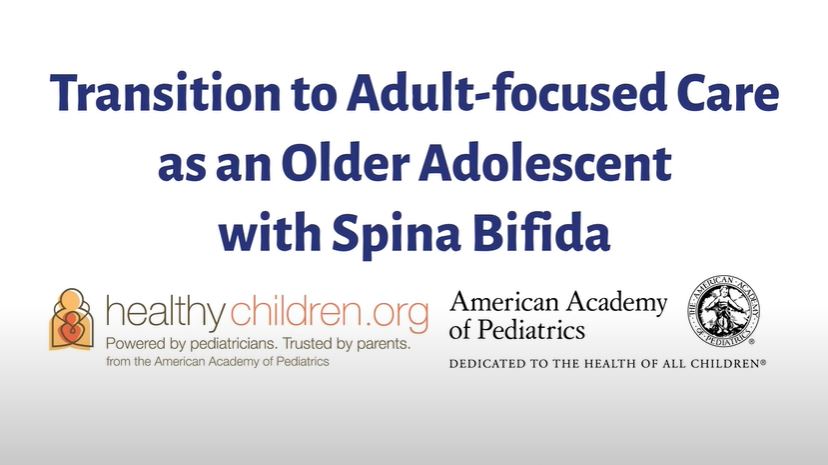
Transition to Adult-focused Care as an Older Adolescent with Spina Bifida
Description: The transition from pediatric to adult-focused care could be a frustrating and confusing process. Reaching age 18 brings new considerations when making decisions about your health care. Watch this video to help you prepare early. Topics covered include understanding the right questions to ask your doctors, developing a care plan, understanding your health insurance coverage and knowing what you will need to do next to make sure you have the support and access to the care you need.
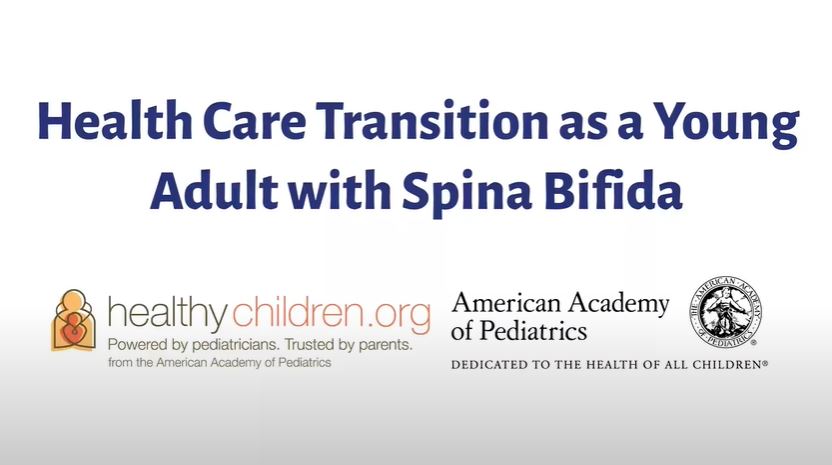
Health Care Transition as a Young Adult with Spina Bifida
Description: As you assemble your adult health care team, remember that you are the most important member of that team! Unlike when you were younger, receiving pediatric care, it is important now to be proactive when it comes to your health. This includes scheduling your doctor’s appointments and raising any concerns you have, instead of waiting for your health care clinician to reach out to you. Watch this video to learn how to manage your care. You’ll also learn how to research your health insurance benefits, maintain access to health care and use the community resources that may be available to you.
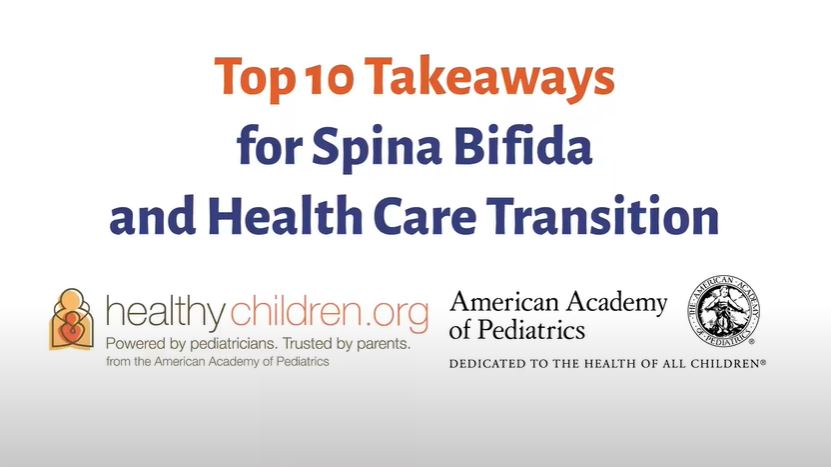
Top 10 Takeaways for Spina Bifida and Health Care Transition
Description: There are many ways to help people living with spina bifida, or their caregivers, better prepare for the health care transition (HCT) process from pediatric to adult-focused care. In this video, the American Academy of Pediatrics outlines the top 10 takeaways from this video series, along with numerous resources for children and young people living with spina bifida, as well as their parents and caregivers.
Additional Spina Bifida Resources from HealthyChildren.org
- Spina Bifida – This article reviews the different types of spina bifida, how it's diagnosed, treatment options and the challenges that people with spina bifida can face.
- Spina Bifida: Helping Teens Transition to Adult Centered Care – Read about how children born with spina bifida can transition from pediatric to adult centered care.
Last Updated
04/20/2023
Source
American Academy of Pediatrics